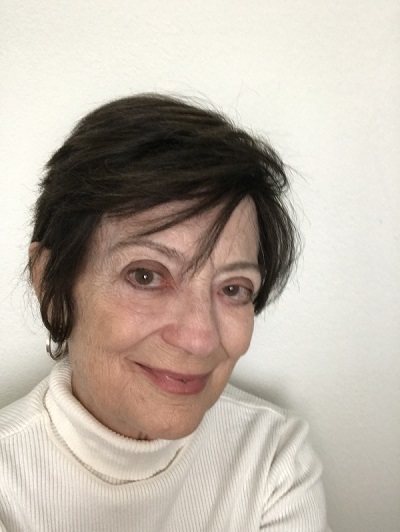Kristin Shrader-Frechette Professor Emerita

Research Interests:
Most of Dr. Shrader-Frechette's research analyzes mathematical, biological, or ethical problems in quantitative risk assessment, public health, or environmental justice (EJ) --especially those related to radiological, hazardous-waste, or energy-related risks. Her work appears in both science journals such as Science, and in philosophy journals such as Philosophy of Science. Her latest NSF grant has been on methodological problems in epidemiological statistics/quantitative risk assessment. The US NSF has funded her scientific research (with her as PI) continuously for 28 years. She has authored more than 400 journal articles and 17 books, including Burying Uncertainty; Method in Ecology; Risk Analysis and Scientific Method; Risk and Rationality; Tainted: How Philosophy of Science Can Expose Bad Science; Taking Action, Saving Lives; What Will Work: Fighting Climate Change with Renewable Energy, Not Nuclear Power. Her work has been published in 13 languages, and she has been a member of many boards and committees of the US National Academies of Science. She also advises numerous governments (including those of the US, Australia, Canada, Netherlands , Norway, and Sweden) and many organizations (including the UN, World Health Organization, International Commission on Radiological Protection, the US Department of Energy, and the US EPA) on energy, hazardous waste, and environmental matters. Because of the long-term, pro-bono, environmental-justice scholarship and service work that she and her students continue to do, in 2004 the World Technology Association gave her its 2004 Ethics Award; in 2007 Catholic Digest gave her its “Heroes” Award; and in 2011 Tufts University gave her its Jean Mayer Global Citizenship Award. In 2023, the International Cosmos Committee of Japan awarded her the 2023 COSMOS Prize of 40 million yen for her work developing environmental justice, based on methods of quantitative risk assessment; previous winners include scientists such as Harvard’s E.O. Wilson, UCLA’s Jared Diamond, and Jane Goodall.
Biography:
- Professor Emerita: Present
- O’Neill Family Professor, Departments of Philosophy and Biological Sciences 1998-Present
- Director, Center for Environmental Justice and Children's Health 2003-Present
- Distinguished Research Professor, University of South Florida, Philosophy, Environmental Sciences and Policy 1987-1998
- Professor, University of Florida, Department of Philosophy, Natural Sciences 1984-1987
- Professor, University of California, Santa Barbara, Professor, Philosophy of Science, Environmental Studies 1982-1984
- Professor, University of Louisville, Philosophy, Natural Sciences 1973-1982
- Assistant Professor, Edgecliff College, Xavier University, Philosophy 1971-1973
- NSF post-doctoral fellow, biological sciences, University of South Florida 1987-1989
- NSF post-doctoral fellow, economics, University of California, Santa Barbara 1983-1984
- NSF post-doctoral fellow, hydrogeology, University of Louisville 1981-1982
- University of Notre Dame, PhD, philosophy, philosophy of science 1972
- Edgecliff College, Xavier University, BA, mathematics (physics) 1967
Recent Papers:
- “A Science-Based Agenda for Health-Protective Chemical Assessments and Decisions: Overview and Consensus Statement.” With Woodruff TJ, … Zeise L., Environmental Health 2023, 21(Suppl 1):132, https://doi.org/10.1186/
s12940-022-00930-3 . - “Addressing Systemic Problems with Exposure Assessments to Protect the Public’s Health.” With Vandenberg LN, Rayasam SDG … Woodruff TJ, Environmental Health 2022, 21:121, https://doi.org/10.1186/
s12940-022-00917-0 . - “Kristin Shrader-Frechette: Confronting Environmental Injustice,” Interview by Michael Greenberg and Karen Lowrie, eds., Risk Analysis 2023, 43: 1301-1309, https://doi.org/10.1111/risa.
14174 . - “Does Hazardous-Waste Testing Follow Technical Guidance, Thus Help Protect Environmental Justice and Health?” Int. J. Environ. Res. Public Health 2022, 19, 7679. <https://doi.org/10.3390/
ijerph19137679 >,< https://pubmed.ncbi.nlm.nih.gov/35805338/ >. - “Health Risks from Supposedly Remediated US Hazardous-Waste Sites: An Early-Warning Signal.” Adv Environ Eng Res 2022; 3(3):41; doi:10.21926/aeer.2203032.
- “Health Misinformation about Toxic-Site Harm: The Case for Independent-Party Testing,” with Andrew Biondo, Int. J. Environ. Res. Public Health 2021, 18(8):3882 doi: 10.3390/ijerph18083882
- “Data-Quality Assessment Signals Toxic-Site Safety Threats and Environmental Injustices,” with Andrew Biondo, Int. J. Environ. Res. Public Health 2021, 18 (4):2012, doi: 10.3390/ijerph18042012
- “Using Routine, Independent, Scientific-Data Audits as an Early-Warning for Potentially Fraudulent Toxic-Site Cleanup,” with Timothy Meade, Accountability in Research 2020, 27(1):1-31. doi: 10.1080/08989621
- “Protecting Children from Toxic Waste: Data-Usability Evaluation Can Deter Flawed Cleanup,” with Andrew Biondo, Int. J. Environ. Res. Public Health 2020, 17, 424. doi: 10.3390/ijerph17020424
- “How Some Scientists and Engineers Contribute to Environmental Injustice,” US National Academy of Engineering: The Bridge 47, no. 1 (2017): 36-44.
- “Pesticides, Neurodevelopmental Disagreement, and Bradford Hill’s Guidelines,” with Christopher ChoGlueck, Accountability in Research 24, no. 1 (2017); http://dx.doi.org/10.1080/08989621.2016.1203786
- “Biased Dismissal of Epigenetic Evidence for ‘Clean-Diesel’ Carcinogenicity and Genotoxicity,” with Catherine McQuestion, Genetics and Genomic Research 3, no. 1 (2016); 1019; ISSN : 2471-030X
- “Flawed Science Delays Smelter Cleanup and Worsens Health,” with M. Spear and R. Thomas, Accountability in Research 22, no. 1 (2015): 41-60; doi: 10.1080/08989621.2014.939746.
- “Resolving Scientific Controversy over Smelter Risks and Neurodegenerative Effects of Metals,” with R. Thomas, AIMS Environmental Science 2, no. 1 (2015): 42-72; doi: 10.3934/environsci.2015.1.42.
- “Flawed Scientific-Evidence Standards and Diesel Regulations,” with A. Pusateri, Accountability in Research 22, no. 3 (2015): 162-191.
- “Taking Action to Stop Pollution Harm to Children and Future Generations,” translated into Russian by Galina Belkina Frolova, Russian Academy of Sciences, no. 3 (2014): 250-258.
- “Biomass and Effects of Airborne Ultrafine Particulates: Lessons About State Variables in Ecology,” Biological Theory 8, no. 1 (April 2013): 44-48; doi: 10.1007/s13752-013-0094-2.
- “Lessons on Drought and Pollution from the Forgotten Three Billion,” with Brianna Kunycky, Global Health Perspectives 1, no. 1 (March 2013): 55-62; doi: 10.5645/ghp2013.01.01.08.
- “Climate Change and Fossil-Fueled Attacks on Science," Metascience 22, no. 3 (November 2013): 637-40; doi: 10.1007/s11016-013-9776-4.
- "Randomization and Rules for Causal Inferences in Biology: When the Biological Emperor (Significance Testing) Has No Clothes," Biological Theory 6, no. 2 (2012):154-161; doi: 10.10071s13752-012-0021-y.